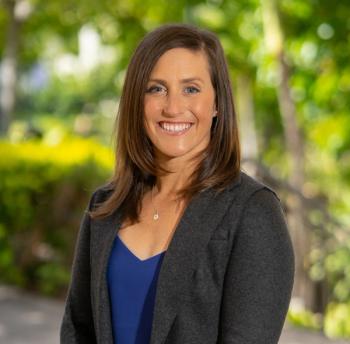
Following the HPLC 2024 Conference in Denver, Colorado, LCGC International spoke with Anne Marie Smith of ACD/Labs about the new ICH Q14 guidelines and how they impact analytical scientists and their work.

Following the HPLC 2024 Conference in Denver, Colorado, LCGC International spoke with Anne Marie Smith of ACD/Labs about the new ICH Q14 guidelines and how they impact analytical scientists and their work.

In this edition of “Inside the Laboratory,” Jillian Goldfarb of Cornell University discusses her laboratory’s work with using gas chromatography–mass spectrometry (GC–MS) to characterize compounds present in biofuels.

In this LCGC Blog, Katelynn Perrault Uptmor discusses her time teaching undergraduates separation science, and what she and her students have learned through their time together.

During RAFA 2024, Michel Suman of Barilla Spa and Catholic University Sacred Heart talked with us about his food safety and authenticity research, focusing on contaminants, adulterants, and authenticity markers in food processing.

Saer Samanipour from the Van ‘t Hoff Institute for Molecular Sciences (HIMS) at the University of Amsterdam spoke to LCGC International about the benefits of a data-driven reversed-phase liquid chromatography (RPLC) approach his team developed.

In a new study, scientists introduced no-code automation as a strategic response for addressing talent shortages in the chemical industry.

Analyzing functional foods reveals numerous health benefits. These foods are rich in bioactive compounds that go beyond basic nutrition, boosting the immune system and improving overall wellness. However, analyzing these compounds can be challenging. This article discusses AI algorithms to support automated method development for liquid chromatography, simplifying the process, enhancing labor efficiency, and ensuring precise results, making it accessible to non-experts for tea analysis.

As part of our ISC 2024 coverage, we recently interviewed Bram Huygens of Vrije Universiteit Brussel about his scientific background and his thoughts on receiving our Rising Stars of Separation Science Award for Liquid Chromatography.

Here is some of the most popular content posted on LCGC International this week.

MS-SMART integrates three intelligent algorithms: automatic mining of diagnostic ions, rapid filtration of alkaloids from untargeted MS/MS data, and structural recommendations for filtered components.

In this LCGC Blog, Kevin Schug discusses the potential machine learning has in helping predict physicochemical properties of molecules and optimizing chemical analysis processes.

Universidad Católica del Maul scientists reviewed advancements made in using machine learning and MALDI-TOF-MS for predicting antimicrobial resistance in different materials.

Shangdong University and Shandong Energy Group scientists recently used HS-GC-IMS was used alongside machine learning algorithms to detect the geographic origins of coal associated with larceny cases.

ACD/Labs, a leading informatics company specializing in software for digitalizing R&D, has announced the release of version 2024 of its Spectrus Platform applications.

University of Bonn scientists monitored how column properties can affect the dynamics between characteristic and elution temperatures in gas chromatography (GC).

Here are the top five articles published on LCGC International this week.

Here are the top five articles published on LCGC International this week.

Here are the top five articles that the editors of LCGC International published this week.

Artificial intelligence (AI) is reshaping analytical chemistry by enhancing data analysis and optimizing experimental methods. This study explores AI's advancements, challenges, and future directions in the field, emphasizing its transformative potential and the need for ethical considerations for separation science and spectroscopy.

LCGC International spoke with Shawn Anderson, Associate Vice President of Digital Lab Innovations at Agilent Technologies; Marco Kleine, Head of the Informatics Department at Shimadzu Europa GmbH; Trish Meek, Senior Director, Connected Science, Waters Corporation and Todor Petrov, Senior Director, QA/QC, Waters Corporation; and Crystal Welch, Product Marketing Manager at Thermo Fisher Scientific about the latest trends in data handling.

Scientists from the University of Turin, Italy have learned how to combine their complementary competencies in analytical chemistry and big data analytics to achieve significant advances in food science and health.

In this installment, we establish why peak integration still poses challenges, and at the same time, see some of the computational techniques in action that we learn to use ourselves in future installments.

In this edition of "Inside the Laboratory," John A. McLean, the dean of graduate education and research at the College of Arts & Science of Vanderbilt University, discusses his laboratory's recent work regarding ion mobility-mass spectrometry (IM-MS) and how it can be applied in various fields.

The 26th Norwegian Symposium on Chromatography was held 21–23 January 2024. The symposium has strong traditions in the Norwegian separation science community, serving as a forum for excellent scientific talks, networking, and social events.

The purpose of this short tutorial article is to review the terms and official nomenclatures for size-exclusion separations and to provide some guidance and recommendations for practicing chromatographers. The interconversion between the different metrics is explained and some examples are presented.